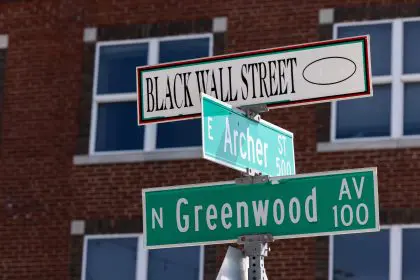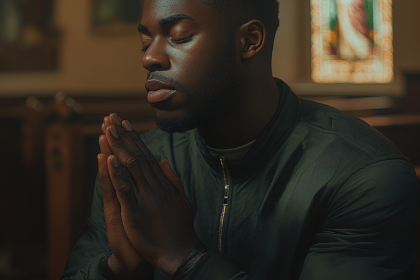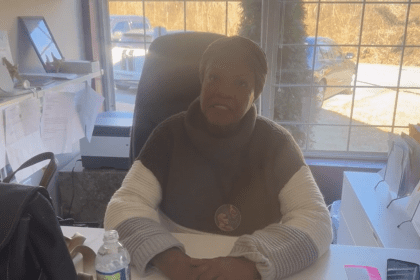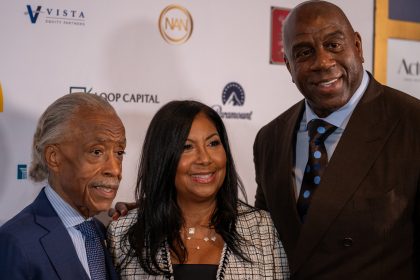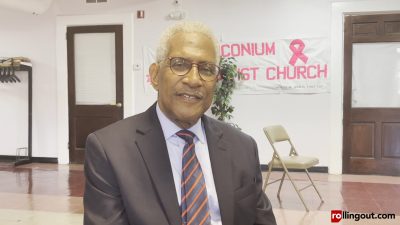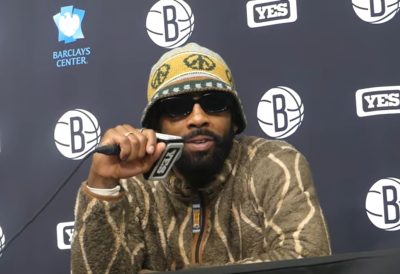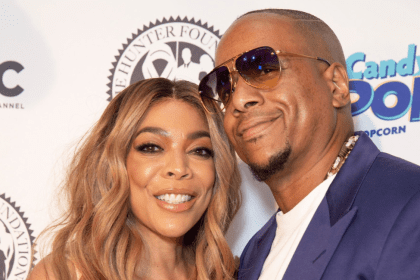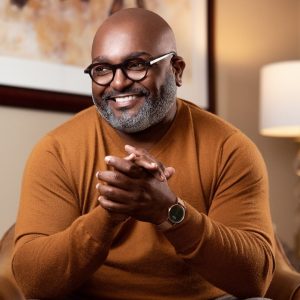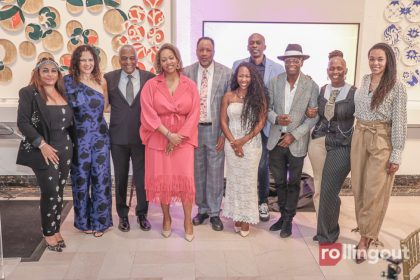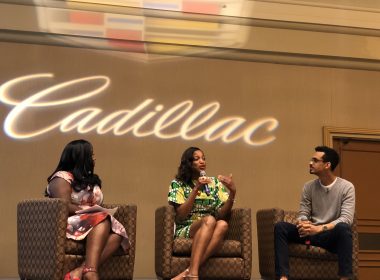
J. Wyndal Gordon, “the warrior lawyer” trial attorney, fights for the rights of those in his community. He is fed up with blatant racism.
What inspired you to become an attorney?
I always say, I did not really choose to go into law, law chose me. I was 14 years old when I decided I wanted to become an attorney. At that time, I didn’t even know what attorneys did; we didn’t have any in my family, and I’d never met one. My father, John Gordon, was a scientist and my mother, Zelmar Gordon, was an Educator. My father sort of encouraged us to go into the sciences, engineering or something similar, while my mother was a bit more liberal. She simply encouraged my brothers and I to find something we were passionate about. So I had no mentoring, or role models in the field of law. But I’ll tell you this, I deplored injustice or unfairness. Whenever I saw someone mistreated by an adult I always felt compelled to speak up about it, and if it was me, I would speak up for myself or allow someone on my behalf when the challenge was above my level of understanding. My mother was good at that. So I guess what inspired me to become an attorney, if have to respond to that particular question it would be how it made me feel to be represented by my mother when it came to issues involving my education. She was big on education and the quintessential “Momma bear”. Family was paramount and you didn’t want to mess with her cubs without just cause. And as a cub, she wasn’t raising any ‘runts’ either. She made sure we were equipped with knowledge and the physical ability to meet life’s challenges, even if that meant getting into physical fights to defend ourselves or other family members. So the fight was inbred, and the disdain for injustice was simply inherent. So law called me at an early age and I answered. It was one of the best decisions I’ve made in my life. I can’t tell you what I’d be doing if I wasn’t practicing law but I think I’d probably be an Amtrak Conductor or an EEO officer. Those were other occupations I marginally considered before 14 and while I was in college, respectively.
As an attorney, what are your specialized areas?
I am a trial attorney. Now that I’ve been practicing law for over 20 years, I consider myself a pro; I can argue all manner of cases and have done so both criminally and civilly. I really think my versatility it what set me apart from other lawyers. Your majority of lawyers who do trial work only do, civil or criminal, rarely are there any who do both. I think the best trial lawyers can do both, and do both really well. A civil trial lawyer is not as exposed to the twists and turns of a trial in the courtroom. Through the discovery process, which is more generous in civil cases when your property is at stake than it is in criminal cases when your liberty is at stake (go figure, right?), does not allow for many surprises. One would think that the converse would be true but that simply is not the case.
Being a criminal defense attorney really tests your mettle as a true litigator, so if I made a billion dollars tomorrow, I would still be trying criminal cases from everything to drugs, guns, rapes and murders, because I love the work. You have to think on your feet as a criminal defense attorney; you have to be clever, and at times cunning. You have to anticipate unfairness, but still be able to navigate your client’s cause to a successful outcome. In a criminal case, everyone is against you but the jury. Any discretionary calls from the court usually go to Prosecutions, and you still have to win. The jury is your only friend and if your piss them off, you’ve got nothing left but weak positioning in the appellate process –talking about risking it all on one turn of “pitch& toss”. You can say the wrong thing or word when everything is going right and lose it all. Or you can say the right thing or word when everything is going wrong and win it all. Anything, literally anything can happen in a criminal trial. A civil trial or more scripted and predictable, if things go off track, you can whine to the court to do something and in most instances the court will. So criminal defense work requires a balance of poise, skill and judgment like no other in the entire law. But I love it, it really is my passion. If it wasn’t my job it would definitely be my hobby.
People seem to have a negative view of Baltimore. How would you describe your city?
Lol. Baltimore lives hard, and we live out loud, but we are a very resilient lot. We take adversity and put it in reverse. We are far from perfect, but we are “perfecting” every day. Though the road we are currently traveling is long and arduous right now, there is prosperity on the horizon. Baltimore can be a wonderful city and warped city all at the same time. Despite our troubles in recent time, it is still home, and is much there is much to be proud of here.
Why have you been so vocal surrounding the racial issues we face today?
Because I’m tired of it. Racism is so blatant today, that perpetrators don’t even try to conceal it anymore, they just let it all hang out in every field of human endeavor. Then they accuse you of being racist by pointing it out and demanding a change to a system that they’ve been beneficiaries of all of their lives. The hypocrisy on this subject is palpable. And then if you listen to the beneficiaries of racism long enough they will eventually excuse their own racism with the false notion that everyone is racist, and that is a position I could never agree with.
Unfortunately, African-Americans have not done enough to prepare ourselves on how to deal with the racism and the brainwashing mind-tricks of white privilege. We’ve gone from white supremacy, to racism, to Jim Crow, and now white privilege –which has gotten African American’s completely befuddled. We are unable to identify racism anymore because it’s masked as white privilege and many of us do not understand how white privilege works.
Basically, white privilege goes like this: whenever all things are equal between a black and a white, whenever a discretion call is allowable, or where positioning and opportunity is key, white privilege will be the deciding factor. If you go through a lifetime of this, the achievement gaps become massive. It will lead us to believe that we’ve been treated fairly and just under-performed, we have no clue that we were placed at a disadvantage from the very start.
When I talk about white privilege, I also like to use this scenario:
You are in a classroom there are eight rows of chairs, five to a row. A waste basket is placed a few feet in front of the first row. All parties siting in the eight rows are instructed to ball up a piece of paper and toss it into the basket. The ones seated in the first and second rows almost all successfully pitched their crumpled ball into the basket, though some may miss, the numbers are however very few. While the ones in the back almost all missed the basket, although one or two may have successfully pitched their paper. Now all rows got the opportunity to participate in the waste basket toss, its just that the ones in the rows closer to the front were advantaged with the privileged of close positioning, while those furthest to the back were disadvantaged merely because of their station in the classroom. And some of them were far better shots than the ones in the front row. Now imagine this scenario over a lifetime. Frustrating isn’t it. That’s white privilege.
Funny enough, in this same scenario there will be a few in the rows closer to the front who will decry the injustice suffered by those in the back rows but most who benefited from their advantaged positioning remain silent on this fact, and pretend that the opportunity afforded to them was equal across the board. Conversely, there will be a few who were able to toss their paper into the basket from the back row who will boast about their accomplishment, and say if I can do it, why can’t you? And they are both right to a small extent, but there is a fundamental unfairness built into this scenario that if your eyes are not open to it, you would be inclined to believe that the equal opportunity was provided, but in fact, it actuality was not. That is how white privilege works. That is why I’m so vocal, not so much about racism, but more about injustice that is often rooted in white privilege.
Most people don’t know their rights. What advice do you have for African Americans if they are pulled over by the police?
If you are in Maryland, my primary advice is pull out your smart phone, place it on video and/or audio record; if you’re nervous, and do not want to advise the officer you are recording, audio record is just as good, and conceal it in your shirt or jacket pocket, the lawyers can sort it out the propriety of the conduct but make that record anyway. Police have technology at their finger-tips and so do you, –use it.
As soon as you see the blue lights, place your phone on record, you should be recording. The recording should be taking place before the police get out of their car to approach yours to request your license and registration or advise you of the reason for the stop. If you don’t the police lawyers and prosecutors will argue up and down that your recording is unreliable because it does not capture the events surrounding entire stop. Record the entire stop.
An officer can demand that you step out of the car or return inside of your car, obey either one or both of those commands. Be courteous, polite, request an attorney if you feel you are being threatened, remain silent and demand your attorney if you are interrogated while you are in physical custody, or when your freedom of movement has been restricted by an official command or show of force. One will not be provided for you at the scene but the words “I want my attorney” are uttered it has the same impact of saying the word “Rumpelstiltskin” in Grimm’s fairy tale. Police by law have to end the interrogation and either complete the process they started without further answers or allow you to leave.
Do not give ever consent to vehicle under any circumstance during a routine police stop. If the officer truly has probable cause to search your car, he will not ask permission, he will simply conduct a search, so the 4th Amendment right against unreasonable searches and seizures is definitely one that you should never give up. If the officer violates your rights, your recording should be capturing all of it. Don’t try to physically stop the officer, just vocally protest his actions loud enough to be picked up in the recording and leave the rest to counsel like me.

